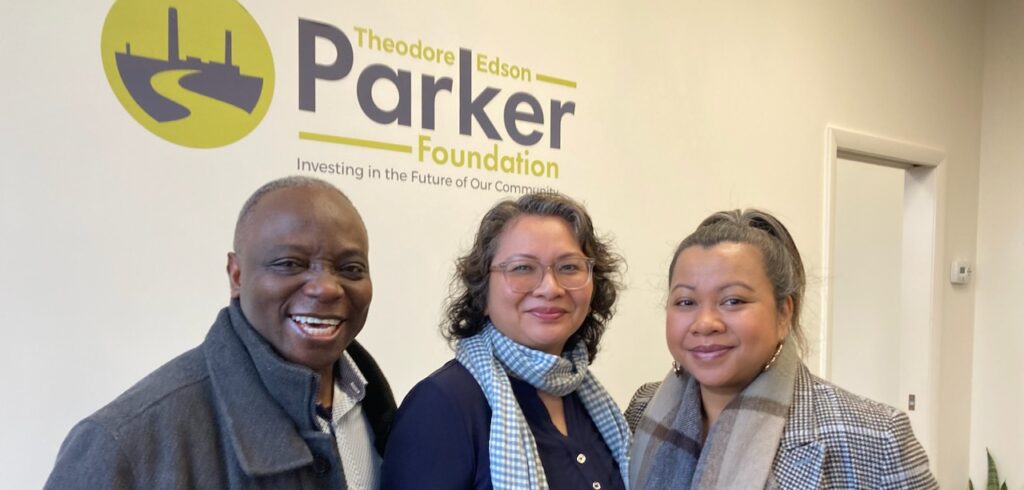The Theodore Edson Parker Foundation has a history of prioritizing its commitment to underserved groups in Lowell, Massachusetts, the city in which the foundation was established in 1944. But in order to really effect change and to more closely reflect an evolving and increasingly diverse Lowell—home to a large immigrant population, including the nation’s second largest group of Cambodians—the Parker Foundation has more recently turned inward, taking steps to diversify its own board of trustees. In incremental ways over the last two decades, the foundation has welcomed stakeholders into the fold, both in an advisory and decision-making capacity.
It’s a good example of a board setting bold goals for itself and slowly, but resolutely, seeing those come to fruition.
Board Diversity
“We are on a journey and we’ve made some real progress,” says Board President Karen Carpenter, the first woman elected to the foundation’s board in 1982. “We have more work to do, but I think we know what the road is.”
Leading up to the diversification of its board, the Parker Foundation launched a fellows program in 2000 to engage Lowell residents and in 2006 created an advisory board. Today, three of the five trustees are former advisory board members, two of whom are from immigrant families, and all three members of the second advisory board are Lowell residents from diverse ethnic backgrounds with strong records of civic engagement.
“Bringing the fellows and advisors in has been a critical step,” says Carpenter. “We are committed to hearing and involving their voices. They are our eyes and ears.”
In 2010, the foundation launched a formal planning process on diversity and inclusion. On the advice of GMA Foundations, the foundation commissioned a diversity report in 2011. In 2017, the Parker Foundation developed and began to implement a diversity, equity, and inclusion plan.
While these steps have been instrumental in setting the Parker Foundation on its path to diversifying, building equity, and redistributing power, the board’s leadership was key to laying a foundation that would support this kind of evolution.
Leadership
Indeed, Carpenter credits past president Newell Flather with setting the tone, noting his experience in Ghana as a member of the first group of Peace Corps Volunteers. “Newell’s life has been one of engaging with other cultures. He’s been on the ground doing this work all along.”
The importance of supportive leadership can’t be understated. In fact, none of these initiatives would have been possible if there wasn’t a leader who thought it was important. And now, having taken up the leadership baton in January 2021, Carpenter is carrying this momentum forward consistent with her own values. “I’ve always believed that the person who’s not at the table should be at the table. And when you bring more people to the table, you need to share power,” she says.
Community Relationships
Sophy Theam, a Khmer American who served as both a fellow and advisor to the Parker Foundation, was elected to the board of trustees in 2010. “Since I’ve been connected to the Foundation, it’s been encouraging nonprofit organizations to diversify their boards” while working to diversify itself. For her own part, Theam recalls Flather initially reaching out to her and cultivating a friendship. “If you’re a historically white board that has never really expanded and doesn’t have a diverse network, you need to start there. But you also need to start building authentic relationships with community members who could ultimately serve on your board in the future. That’s what Newell did with me.”
Place-Based Grantmaking
The Parker Foundation’s journey to diversify its board brings with it an intensified focus on grantmaking to organizations led by people of color and those that benefit immigrant communities and communities of color. In 2020, these grants represented more than 30 percent of the foundation’s grants portfolio. Today, more than 98 percent of the Parker Foundation’s grantmaking is directed to Lowell – a trajectory begun in 1982 when it began to shift its grantmaking away from Boston and the surrounding communities.
The results reflect a desire to be more local and to have an impact. As the city continued to change, the Parker Foundation wanted to become connected to those on the ground and identify the emergent needs.
This kind of connection is vital in that it educates you on what’s happening in the community and allows you to be more responsive and make better decisions in grant-making.
Looking ahead, the Theodore Edson Parker Foundation will continue to assess its progress, measure the impact of its grants, and encourage diversity among grantees. See a list of past grant recipients here. This progress hasn’t been a straight line, but rather, different waves of changes.
“We’re not declaring success,” says Carpenter. “We need to keep at it.”
Chaletta Huertas is GMA Foundations’ Senior Program Officer and lead program officer for the Theodore Edson Parker Foundation. Chaletta’s expertise is in evaluating programs, managing complex projects, and strategizing ways to maximize impact. She has deep experience in the fields of early childhood education and youth development for diverse populations.


